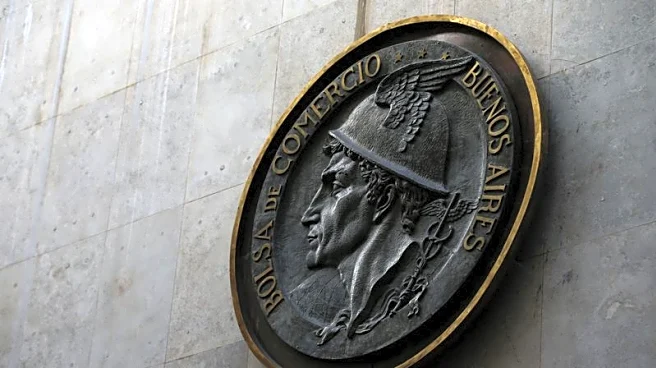What's Happening?
A phrase from a podcast episode, 'girl-bossed too close to the sun,' has ignited a cultural debate following its inclusion in a track on Taylor Swift's latest album, released on October 3, 2025. The phrase, originally used by conservative commentator Candace Owens in January 2025, has been amplified through Swift's music, leading to record sales and streaming numbers. Entertainment Weekly's exclusive interview further propelled the phrase into mainstream discussion, with critics and supporters divided over its implications. The lyric has transformed a niche media comment into a widespread controversy, raising questions about artistic intent and public interpretation.
Why It's Important?
The inclusion of the podcast phrase in Swift's album highlights the power of music to transform media commentary into cultural phenomena. This development underscores the influence of celebrity platforms in shaping public discourse and the potential for lyrics to reframe private matters as public theater. The debate reflects broader societal tensions around media narratives and artistic expression, with implications for how cultural commentary is perceived and utilized. The controversy may impact Swift's public image and influence future artistic collaborations, while also affecting Owens' visibility as a media figure.
What's Next?
The ongoing debate is likely to continue as fans and critics dissect the implications of the lyric. Media outlets and commentators may further explore the intersection of celebrity influence and media commentary, potentially leading to new discussions on artistic responsibility and public perception. Swift's album sales and streaming numbers will be closely monitored to assess the long-term impact of the controversy. Additionally, Owens' role in the debate may lead to increased scrutiny of her commentary and its cultural resonance.
Beyond the Headlines
The incident raises questions about the ethical dimensions of using media commentary in artistic works. It highlights the blurred lines between public and private narratives in the digital age, where a single phrase can gain widespread traction and influence public opinion. The debate may contribute to ongoing discussions about the role of artists in shaping cultural discourse and the responsibilities of media figures in framing public narratives.









